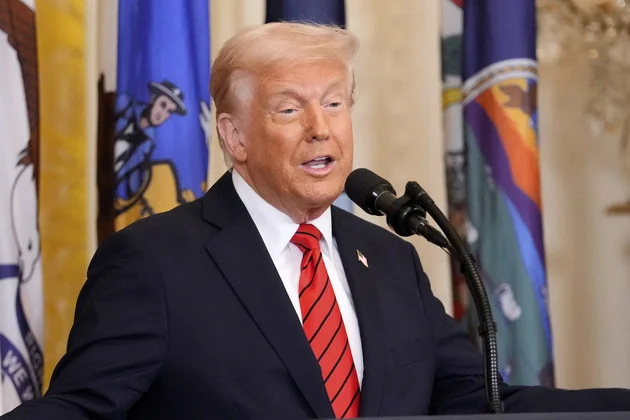Islamabad, Mar 28, 2025: U.S. President Donald Trump has petitioned the Supreme Court to lift a lower court’s temporary block on his administration’s use of the Alien Enemies Act of 1798 to deport alleged Venezuelan gang members, as part of his administration’s hardline immigration policies.
The Justice Department filed the request on Friday, arguing that the Constitution grants the president, not the judiciary, the authority to handle national security operations.
“The republic cannot afford a different choice,” the Justice Department stated in its filing, contending that Trump’s actions are lawful under presidential wartime powers.
READ MORE:
Trump’s ‘Gold Card’ Visa Boom: 1,000 Sold Daily
Legal Challenge and Court Orders
Trump invoked the Alien Enemies Act on March 15 to fast-track the deportation of alleged members of the Tren de Aragua gang, a Venezuelan criminal organization.
However, the law historically used in wartime has sparked constitutional concerns, leading to a legal challenge by the American Civil Liberties Union (ACLU) on behalf of detained Venezuelans.
Judge James Boasberg of the U.S. District Court in Washington ordered a temporary halt to the deportations.
President Donald Trump’s administration has argued that Boasberg’s ruling encroaches on presidential authority, while the judge is also examining whether the administration violated his order by allowing the flights to continue.
Judicial Clash and Political Fallout
The case escalated on March 18, when President Donald Trump called for Judge Boasberg’s impeachment, accusing him of being a “radical left lunatic” and an “agitator.”
U.S. Chief Justice John Roberts publicly rebuked Trump’s remarks, emphasizing the importance of judicial independence.
The D.C. Circuit Court of Appeals later upheld Boasberg’s ruling, with a heated exchange occurring during the hearing.
Judge Patricia Millett controversially remarked that “Nazis got better treatment under the Alien Enemies Act than has happened here”, a comparison that Justice Department lawyer Drew Ensign strongly rejected.
Human Rights Concerns and Deportation Errors
Family members of several deported Venezuelan migrants deny any gang affiliations. Lawyers for one deportee a Venezuelan professional soccer player and youth coach argued that U.S. officials misidentified him as a gang member because of a tattoo of a crown, which was actually meant to honor Real Madrid, his favorite soccer team.
U.S.-Canada Relations: Trump Speaks with Canadian PM Mark Carney
Amid the immigration controversy, Trump confirmed he held a “productive call” with Canadian Prime Minister Mark Carney on Friday.
The leaders plan to meet after Canada’s election next month, discussing economic and political ties.
“It was an extremely productive call,” President Donald Trump wrote on Truth Social, adding that future cooperation would be “great for both the United States of America and Canada.”
The call comes as Canada seeks to lessen its economic reliance on the U.S., and ahead of President Donald Trump’s expected tariff announcement on April 2. Carney’s office has yet to issue a statement on the conversation.









